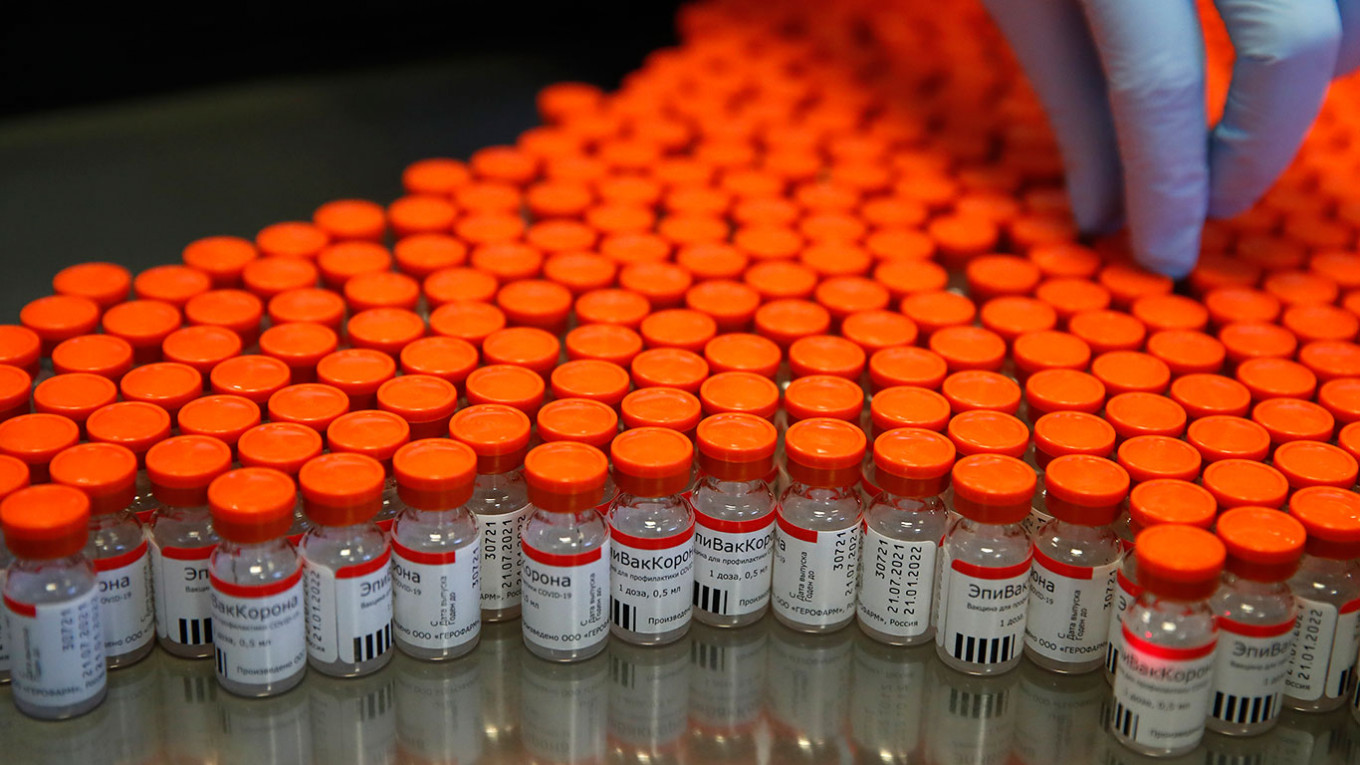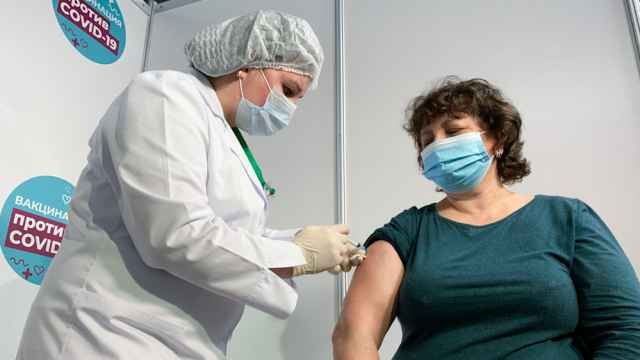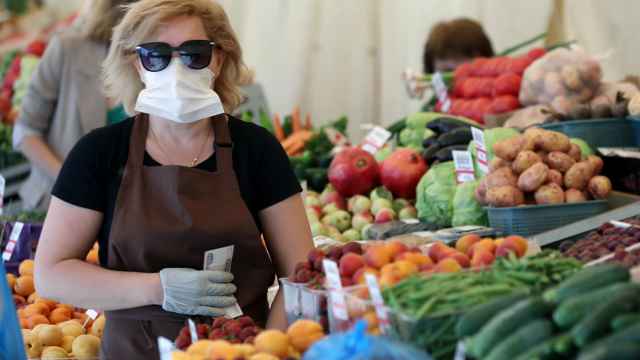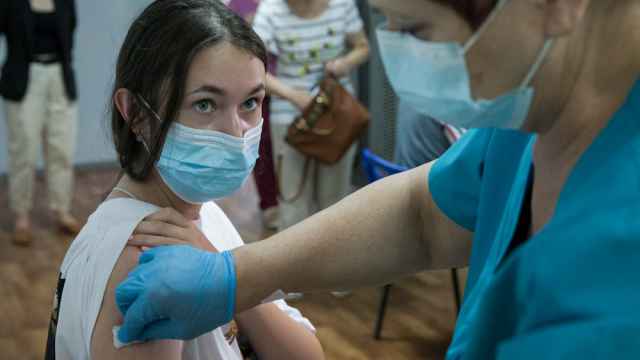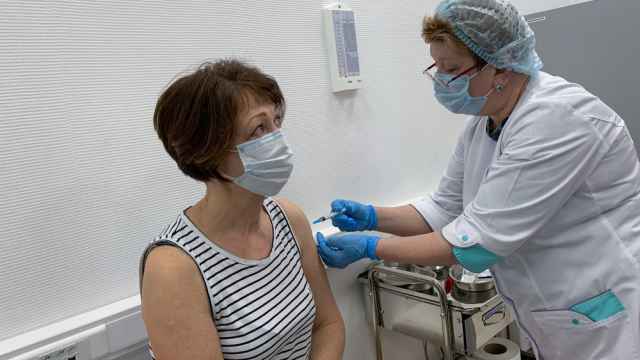The Russian Health Ministry has suspended orders of the country’s second coronavirus vaccine due to low demand nationwide, the Vedomosti business daily reported Tuesday.
Citing the federal health watchdog’s drug distribution database, the outlet said not a single batch of the EpiVacCorona vaccine has been distributed to Russia’s 85 regions since the start of 2022. It added that Russia’s Health Ministry and EpiVacCorona’s distributor have not submitted production requests so far this year.
“There are grounds to [assume] suspended production of this vaccine,” Vedomosti quoted an unnamed employee of one of Russia’s scientific institutes as saying.
Health departments in all 85 Russian regions last received new batches of EpiVacCorona in late November or early December, Vedomosti reported. The date of its next deliveries is unknown.
At least two regions — Moscow and the Nenets autonomous district — have run out of the shots, while several others have only a few thousand left.
EpiVacCorona is a two-shot peptide vaccine developed by the Siberia-based Vektor Institute.
An unnamed Vektor spokesperson told Vedomosti that EpiVacCorona is being manufactured according to established plans but did not clarify whether it is currently being produced.
Vektor said it produced a total of 13 million EpiVacCorona doses in 2021, compared with the quarter-million doses of Russia’s first registered Covid-19 vaccine, Sputnik V, produced that year.
Health Ministry and pharmaceutical executives said the current supply of EpiVacCorona is sufficient to cover existing needs, Vedomosti reported.
The Russian government approved EpiVacCorona for use in October 2020, before the start of large-scale Phase 3 clinical trials.
A Message from The Moscow Times:
Dear readers,
We are facing unprecedented challenges. Russia's Prosecutor General's Office has designated The Moscow Times as an "undesirable" organization, criminalizing our work and putting our staff at risk of prosecution. This follows our earlier unjust labeling as a "foreign agent."
These actions are direct attempts to silence independent journalism in Russia. The authorities claim our work "discredits the decisions of the Russian leadership." We see things differently: we strive to provide accurate, unbiased reporting on Russia.
We, the journalists of The Moscow Times, refuse to be silenced. But to continue our work, we need your help.
Your support, no matter how small, makes a world of difference. If you can, please support us monthly starting from just $2. It's quick to set up, and every contribution makes a significant impact.
By supporting The Moscow Times, you're defending open, independent journalism in the face of repression. Thank you for standing with us.
Remind me later.


